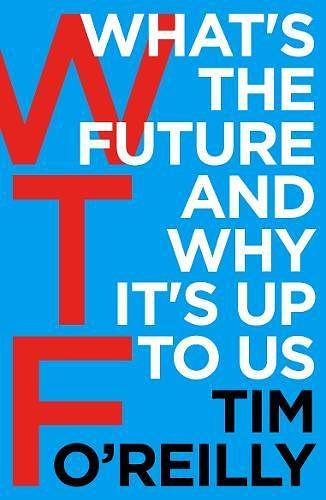內容簡介
內容簡介 矽谷權威及歐萊禮媒體創辦人提姆歐萊禮 探討下一個經濟盛事的來臨「理解未來經濟不可或缺的經典之作!」─LinkedIn創辦人里德霍夫曼「科技發展才是未來最有價值的導師。」─《富比士雜誌》提姆‧歐萊禮憑藉自己的天份,辨別及剖析科技快速發展將徹底改變世界的隱藏力量,從全球資訊網、自由軟體、Web 2.0、政府資源開放平台、自造者運動、大數據等,這些新興技術將如何影響未來的工作發展及走向。近期他專精研究未來科技工作走向,例如人工智慧及演算法將會如何形塑我們的未來生活、商業組織的發展是否能找到新路徑、收入不均和技術失業是否無可避免、技術學習將如何顛覆傳統教育。他揭示了新興技術未來將帶給社會與商業巨大的改變,並針對企業與員工提出許多實用的建議與對策,如何在劇變的時代下成為優秀的頂尖人物。 An indispensable guide.' Reid Hoffman, co-founder of LinkedIn'Tech’s most valuable teacher.' ForbesSilicon Valley’s leading intellectual and the founder of O’Reilly Media explores the upside and the potential downsides of our future – what he calls the 'next economy'.Tim O’Reilly’s genius is to identify and explain emerging technologies with world shaking potential – the World Wide Web, Open Source Software, Web 2.0, Open Government data, the Maker Movement, Big Data. 'The man who can really can make a whole industry happen,' according to Executive Chairman of Google Eric Schmidt, O’Reilly has most recently focused on the future of work – AI, algorithms, and new approaches to business organisation that will shape our lives. He has brought together an unlikely coalition of technologists, business leaders, labour advocates, and policy makers to wrestle with these issues. In WTF he shares the evolution of his intellectual development, applying his approach to a number of challenging issues we will face as citizens, employees, business leaders, and a nation.What is the future when an increasing number of jobs can be performed by intelligent machines instead of people, or only done by people in partnership with those machines? What happens to our consumer based societies – to workers and to the companies that depend on their purchasing power? Is income inequality and unemployment an inevitable consequence of technological advancement, or are there paths to a better future? What will happen to business when technology-enabled networks and marketplaces are better at deploying talent than traditional companies? What’s the future of education when on-demand learning outperforms traditional institutions? Will the fundamental social safety nets of the developed world survive the transition, and if not, what will replace them?The digital revolution has transformed the world of media, upending centuries-old companies and business models. Now, it is restructuring every business, every job, and every sector of society. Yet the biggest changes are still ahead. To survive, every industry and organisation will have to transform itself in multiple ways. O’Reilly explores what the next economy will mean for the world and every aspect of our lives – and what we can do to shape it.'Tim O’Reilly has been at the cutting edge of the Internet since it went commercial.' New York Times'O’Reilly’s ability to quickly identify nascent trends is unparalleled.' Wired'The man who can really can make a whole industry happen.' Eric Schmidt, Executive Chairman of Google.'Silicon Valley’s leading intellectual.' Inc.
